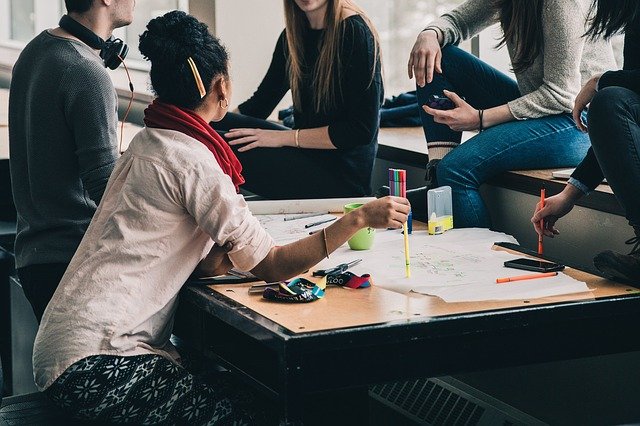Learning should be an all-around process and shouldn’t focus only on building intellect. The skills required for students to excel in this modern world go far beyond pages of literature and science. They need to be able to forge healthy interpersonal relationships that would help improve their mindset and emotions. SEL (social and emotional learning) focuses on teaching students self-awareness and management, societal values, and emotional competencies. Psychology emphasizes the need to build the attitude quotient of students and not only their intelligence quotient. Teaching students how to respond to the challenges they would encounter in life is synonymous to giving them a tool for emotional and social wellbeing. Many students suffering from all forms of social and emotional dilemmas are victims of ignorance, with no knowledge on how to resolve internal conflicts and pressures. SEL is critical to building a positive foundation for students. Here are a few reasons why SEL is important.

The need to forge strong interpersonal relationships
Sooner or later as students grow, they detach from parents and want to socialize with their peers. This is what the psychosexual developmental theory of Sigmund Freud calls the latent stage of development. They feel a need to be accepted and if they can’t discover themselves, depression and anxiety begin to set in. These relationships build self-confidence, inspire healthy competition, and expose the students to new adventures. At this stage, they require guidance, love, and attention to help them structure their path. They want to be treated as adults and are curious to know everything. Social and emotional skills are required as these young lads encounter social obstacles like rejection, inferiority, frustration, and anger. SEL teaches them how to deal with these issues and forge connections that would make them happy adults. The role of parents being the first point of contact for students is detailed at PositiveAction.net, as they are the closest to their wards. Every societal institution has a role to play in helping these students become who they need to be and more.
The need for healthy choices and decision making
As they gradually attain maturity and gain their independence, they are faced with the challenge of making choices and decisions that could impact their lives significantly. These decisions and choices can make or mar their future if taken lightly. Students phase up with the bad and the good, and have to decide which way to turn. Their need for acceptance is a major drive towards making poor decisions. This is one of the goals of SEL, as the knowledge helps them understand how choices can affect their future. It helps them build a positive notion, and belief in themselves. They can make decisions between what’s good and bad, right or wrong. It influences their choice of association and participation. They understand that they do not need to get involved in illicit behaviors to gain the trust of their peers or social credibility.
Self-Management and awareness
As a young adult, one of the biggest challenges is understanding one’s self. There is a development stage of Erikson’s developmental theory tagged ‘identity versus confusion’. At this stage, the students undertake a journey to self-discovery. This journey is characterized by a lot of crossroads that influence one’s identity formation process. They either end up confused (identity crisis) or aligned with purpose. SEL teaches students how to understand and approach this crucial period of their lives. Thus, they can surmount whatever challenges, misdirection, and negativities they encounter. They can build strong personalities and become amiable adults.
Psychological Balance
The developmental process of students is a combination of the effects of nature and nurture. Nature is the biological development based on hereditary traits and genetic coding. Nurture on the other hand is focused on the social and environmental influences that form a core part of a student’s development. As students develop biologically, they also need to incorporate social norms and values. These enable them to integrate and fit into society properly. The home is where the nurturing begins, and this is done by siblings and parents. The other part is done by whatever society they find themselves. They are taught what is acceptable and what is considered deviant. They are taught boundaries and respect. This knowledge helps both sides of the brain grow and attain maturity. These students can identify and explain behavioral patterns based on their knowledge of good and bad. In order words, they can make healthy judgments.
Social and Emotional learning needs to be encouraged more in our institutions as it can help rectify a lot of behavioral ills ravaging our moral foundations and value systems.










